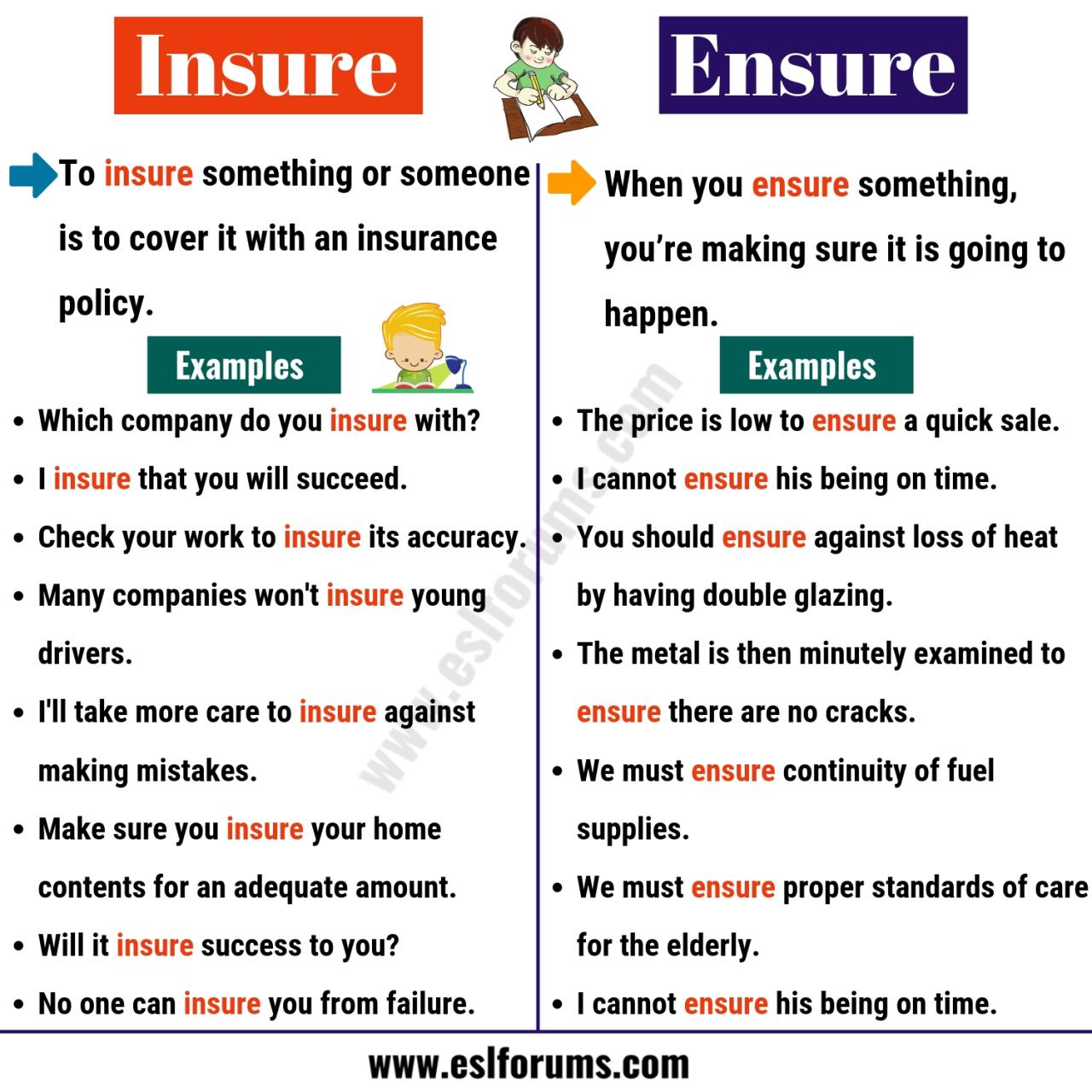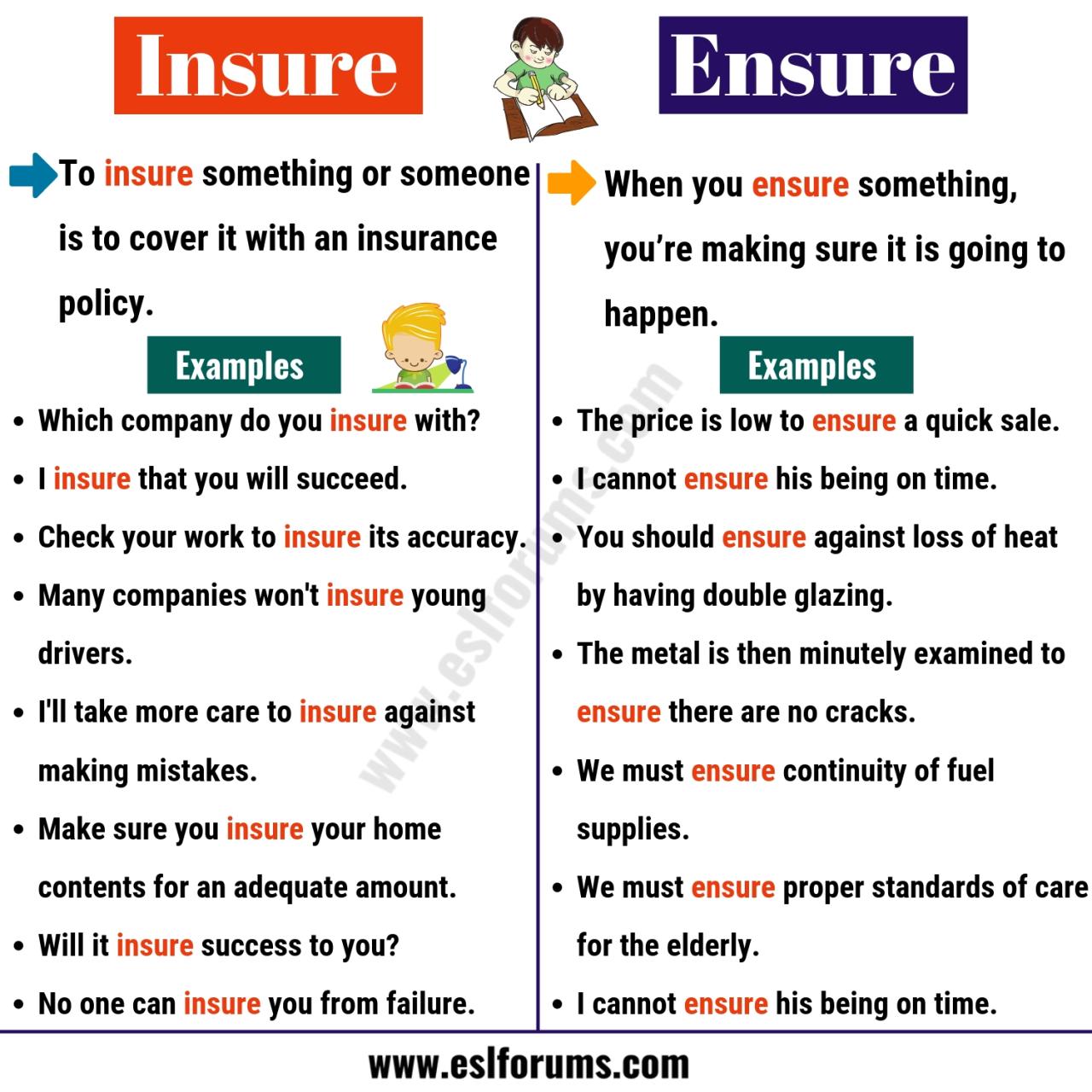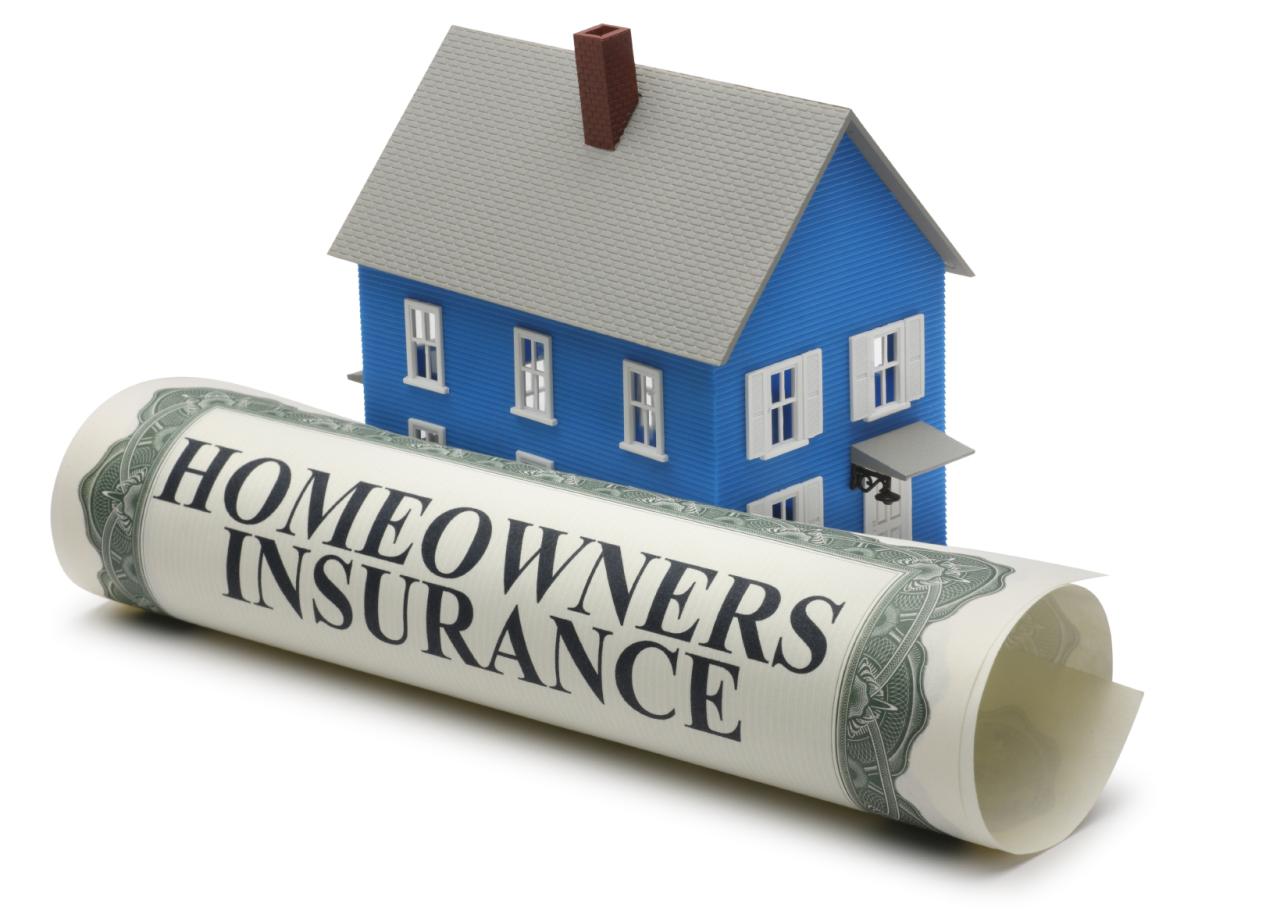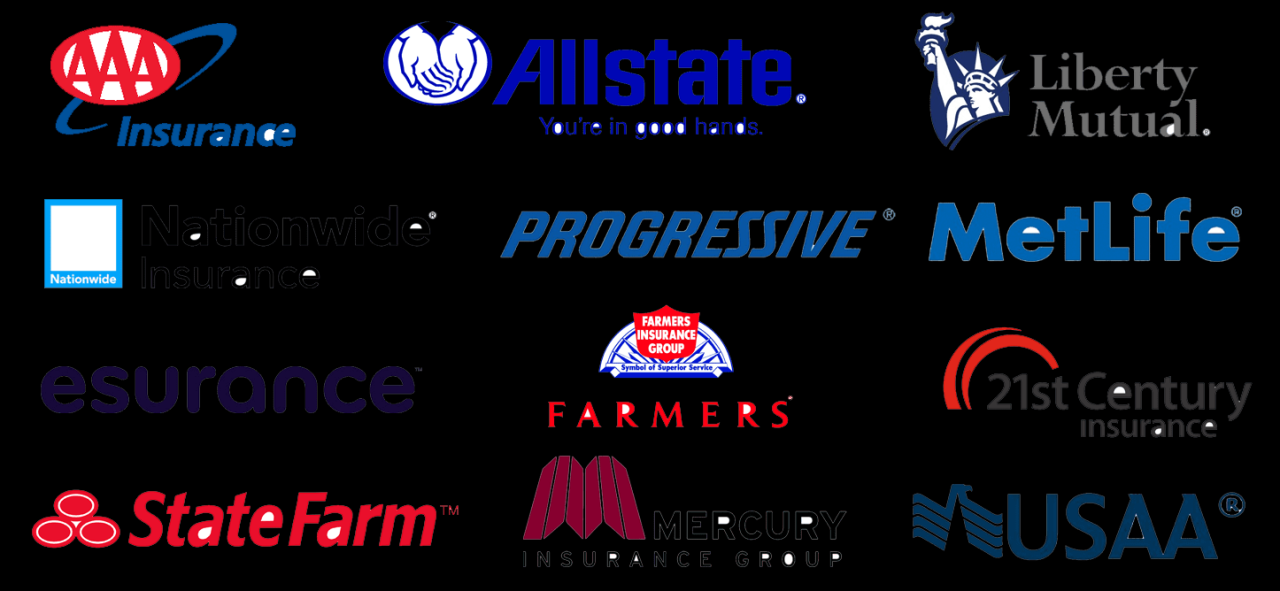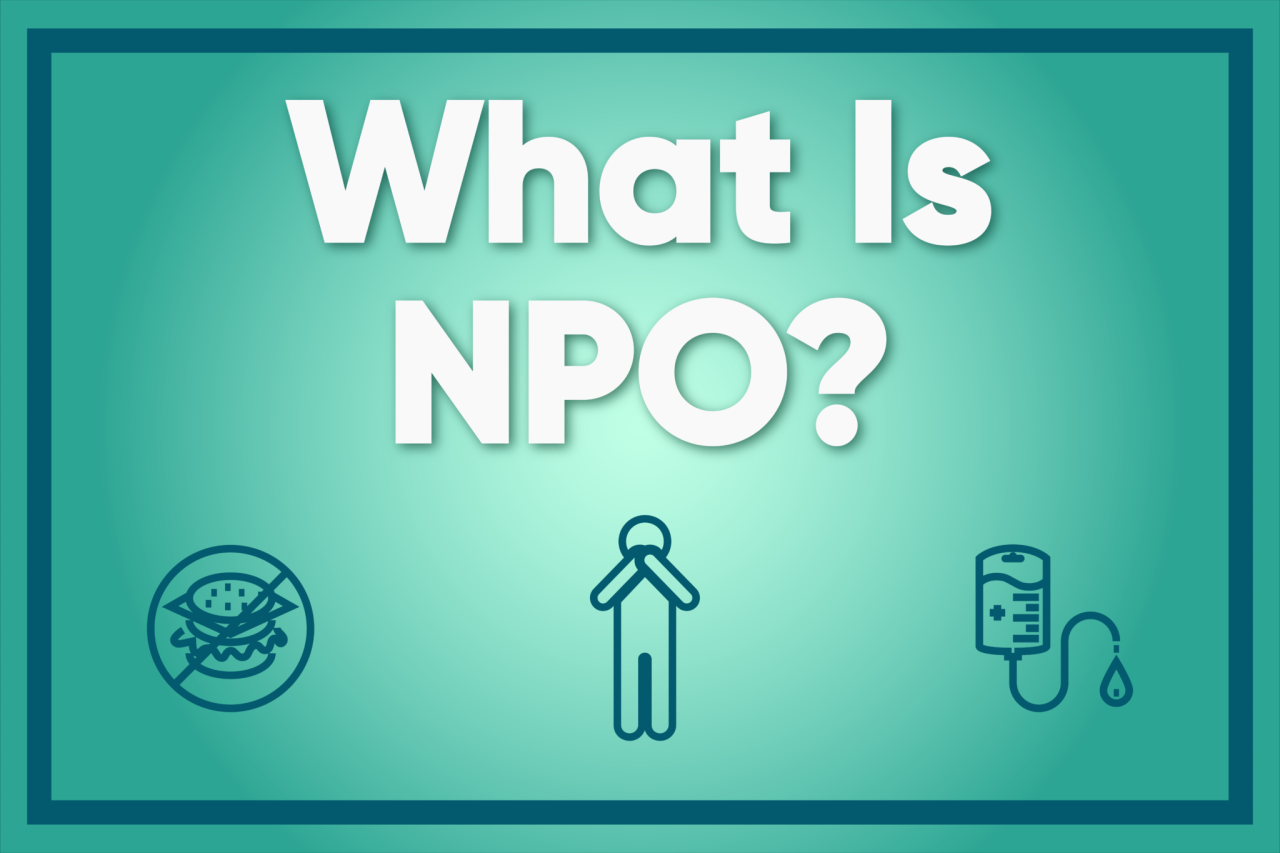General liability insurance is a crucial safety net for businesses and individuals, providing financial protection against a wide range of risks. It acts as a shield against unexpected lawsuits and claims, ensuring peace of mind in a world full of uncertainties.
Imagine a customer tripping over a loose floorboard in your store, or a contractor damaging your property while working on a project. These scenarios can lead to costly lawsuits, and general liability insurance can help cover the legal fees, medical expenses, and other damages involved.
It’s essentially a safety net that protects your assets and reputation in the face of unforeseen events.
What is General Liability Insurance?
General liability insurance is a crucial type of coverage for businesses and individuals. It protects you against financial losses arising from third-party claims related to bodily injury, property damage, and other incidents that may occur on your premises or during your operations.
Purpose of General Liability Insurance
The primary purpose of general liability insurance is to provide financial protection against lawsuits and claims that may arise from your actions or inactions. This coverage helps to safeguard your assets, reputation, and financial stability in the event of an unexpected incident.
Common Risks Covered by General Liability Insurance
General liability insurance covers a wide range of common risks, including:
- Bodily injury:This includes injuries caused by slips, trips, falls, or other accidents on your premises.
- Property damage:This covers damage to property belonging to others, such as damage to a customer’s belongings or a neighbor’s fence.
- Advertising injury:This protects you against claims arising from false or misleading advertising, copyright infringement, or other forms of intellectual property violations.
- Personal and advertising injury:This covers claims related to defamation, libel, slander, or other forms of personal injury.
- Medical payments:This coverage helps pay for medical expenses for injuries sustained on your premises, regardless of fault.
Types of Claims Protected by General Liability Insurance
General liability insurance can protect you against various types of claims, such as:
- Premises liability:Claims arising from accidents or injuries that occur on your property.
- Product liability:Claims related to defective products or services you provide.
- Professional liability:Claims arising from errors or omissions in your professional services.
- Contractual liability:Claims related to breaches of contracts or agreements.
Who Needs General Liability Insurance?
General liability insurance is essential for a wide range of businesses and individuals. It provides crucial protection against financial risks associated with various activities and operations.
Businesses Requiring General Liability Insurance
Many businesses need general liability insurance, regardless of their size or industry. This includes:
- Retail stores:To protect against claims from customers who slip, trip, or fall on their premises.
- Restaurants:To cover claims related to food poisoning, injuries from spills, or accidents in the kitchen.
- Construction companies:To safeguard against claims from injuries sustained by workers or damage to property during construction projects.
- Service businesses:To protect against claims arising from errors or omissions in their services, such as accountants, lawyers, or consultants.
- Non-profit organizations:To cover claims related to accidents or injuries that occur during events or activities.
Individuals Requiring General Liability Insurance
While general liability insurance is primarily associated with businesses, certain individuals also need this coverage. This includes:
- Freelancers and independent contractors:To protect against claims arising from their work, such as injuries to clients or damage to property.
- Home-based businesses:To cover claims related to activities conducted from their homes, such as product liability or customer injuries.
- Landlords:To protect against claims from tenants or visitors who are injured on their property.
Mitigating Risks with General Liability Insurance
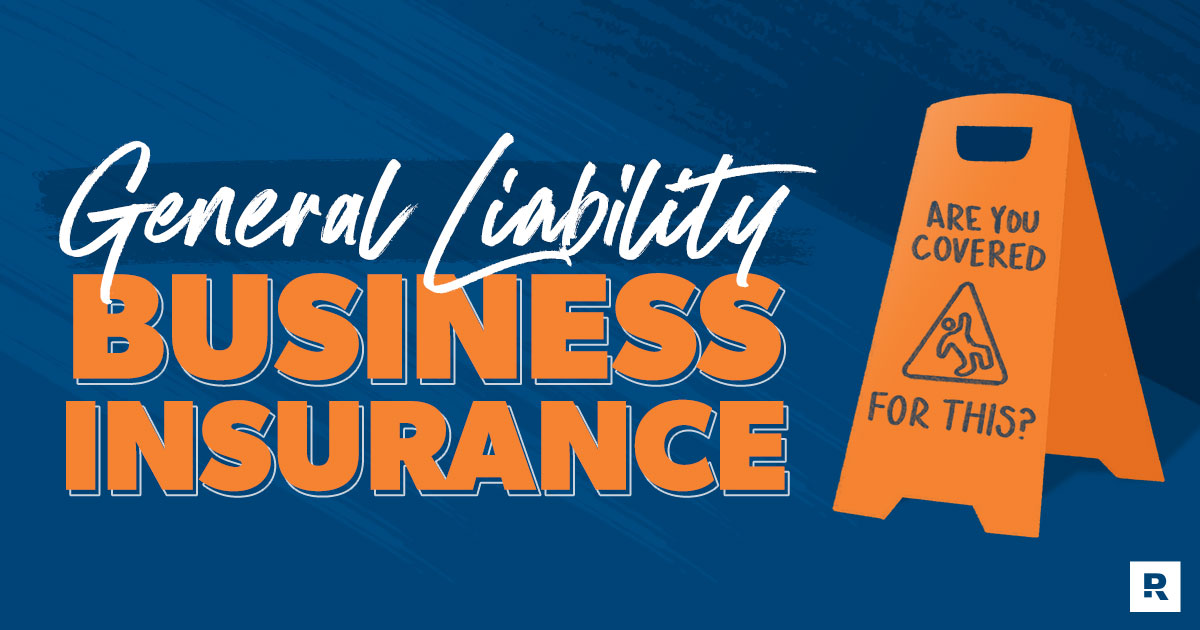
General liability insurance can significantly mitigate risks for businesses and individuals by:
- Providing financial protection:It covers legal fees, settlements, and judgments arising from claims.
- Protecting assets:It safeguards your assets, such as your home, business, and savings, from being seized to pay for claims.
- Maintaining reputation:It helps preserve your business or personal reputation by mitigating negative publicity and financial repercussions.
Key Coverage Components
A general liability insurance policy typically includes several key coverage components designed to provide comprehensive protection.
Coverage Components
- Bodily injury and property damage liability:This covers claims arising from injuries to third parties or damage to their property caused by your negligence.
- Personal and advertising injury liability:This protects you against claims related to libel, slander, copyright infringement, or other forms of personal injury.
- Medical payments coverage:This pays for medical expenses for injuries sustained on your premises, regardless of fault. It helps reduce the risk of lawsuits and maintain goodwill with injured parties.
- Defense costs:This covers the legal fees and expenses incurred in defending against claims, even if the claim is ultimately found to be invalid.
Limitations and Exclusions
It’s crucial to understand the limitations and exclusions associated with general liability insurance. These may vary depending on the policy, but common exclusions include:
- Intentional acts:Coverage does not apply to injuries or damage caused intentionally by you or your employees.
- Professional negligence:Claims arising from errors or omissions in professional services may be excluded and require separate professional liability insurance.
- Environmental damage:Coverage may not extend to claims related to pollution or environmental contamination.
- Employee injuries:Claims for injuries sustained by your employees are typically covered by workers’ compensation insurance.
Factors Affecting Premiums
The cost of general liability insurance premiums can vary significantly based on several factors. Understanding these factors can help you manage your insurance costs effectively.
Factors Influencing Premiums
- Industry and business type:Some industries, such as construction or healthcare, carry higher risks and therefore higher premiums.
- Location:Premiums may vary depending on the location of your business, considering factors like crime rates and population density.
- Size and revenue:Larger businesses with higher revenues typically face greater potential liability exposure, leading to higher premiums.
- Claims history:A history of past claims can increase your premium, as it indicates a higher risk profile.
- Safety measures:Implementing strong safety protocols and procedures can reduce your risk profile and potentially lower your premium.
- Coverage limits:Higher coverage limits, which provide greater financial protection, generally result in higher premiums.
Impact on Premium Calculation
Insurance companies use complex algorithms to calculate premiums, taking into account various factors and risk assessments. These factors are weighted differently depending on the insurer and the specific policy.
Reducing Premiums, General liability insurance
Businesses can potentially reduce their general liability insurance premiums by:
- Improving safety practices:Implementing robust safety measures and training programs can reduce the likelihood of accidents and claims.
- Maintaining a good claims history:By preventing claims or handling them efficiently, you can maintain a positive claims history, potentially leading to lower premiums.
- Exploring different insurers:Comparing quotes from multiple insurers can help you find the best rates and coverage options.
- Negotiating coverage limits:Carefully consider the coverage limits you need and negotiate with your insurer to find a balance between protection and cost.
Filing a Claim
In the event of an incident that may require a claim under your general liability insurance policy, it’s crucial to follow the proper procedures for filing a claim.
Claim Filing Process
- Report the incident:Immediately notify your insurance company about the incident, providing details about the date, time, location, and nature of the event.
- Gather documentation:Collect any relevant documentation, such as police reports, medical records, witness statements, or photographs.
- Complete the claim form:Submit a completed claim form to your insurance company, providing all necessary information about the incident and the potential claim.
- Cooperate with the insurer:Be responsive to requests for information or documentation from your insurance company.
- Negotiate a settlement:Once the claim is investigated, you may need to negotiate a settlement with the insurance company.
Claim Settlement Process
The claim settlement process involves several steps:
- Investigation:The insurance company will investigate the incident to determine the validity of the claim and the extent of liability.
- Evaluation:The insurer will assess the damages and determine the amount of compensation due.
- Negotiation:Both parties may engage in negotiations to reach a mutually agreeable settlement amount.
- Payment:Once a settlement is reached, the insurance company will issue payment to the claimant.
Importance of Coverage: General Liability Insurance
Having adequate general liability insurance coverage is essential for businesses and individuals to protect their financial well-being and mitigate the risks associated with various activities.
If you’ve been caught driving without insurance or have a history of traffic violations, you might need to get SR22 insurance. This type of insurance acts as proof to the state that you have financial responsibility, which is required to reinstate your driving privileges.
Financial and Legal Consequences of Not Having Coverage
Operating without general liability insurance can lead to severe financial and legal consequences:
- Financial ruin:A lawsuit or claim without insurance can result in significant financial losses, potentially leading to bankruptcy.
- Legal fees and judgments:You may be responsible for paying hefty legal fees and court judgments, even if the claim is ultimately found to be invalid.
- Reputation damage:Negative publicity and financial repercussions associated with a lawsuit can severely damage your business or personal reputation.
Real-Life Scenarios
There are numerous real-life scenarios where general liability insurance has provided critical protection, such as:
- A customer slips and falls in a store:General liability insurance can cover the medical expenses, legal fees, and potential settlements associated with the injury.
- A product defect causes injury:The insurance can help protect the business from financial losses arising from product liability claims.
- A freelancer is sued for negligence:General liability insurance can provide financial protection and legal defense against the claim.
Benefits of Adequate Coverage
Having adequate general liability insurance provides numerous benefits:
- Peace of mind:Knowing you have insurance protection can reduce stress and anxiety associated with potential risks.
- Financial security:It provides a financial safety net in the event of a claim, safeguarding your assets and financial well-being.
- Business continuity:It helps protect your business from disruptions caused by lawsuits or claims.
- Enhanced credibility:Having insurance coverage can demonstrate your commitment to safety and responsibility, enhancing your credibility with customers and partners.
Last Point
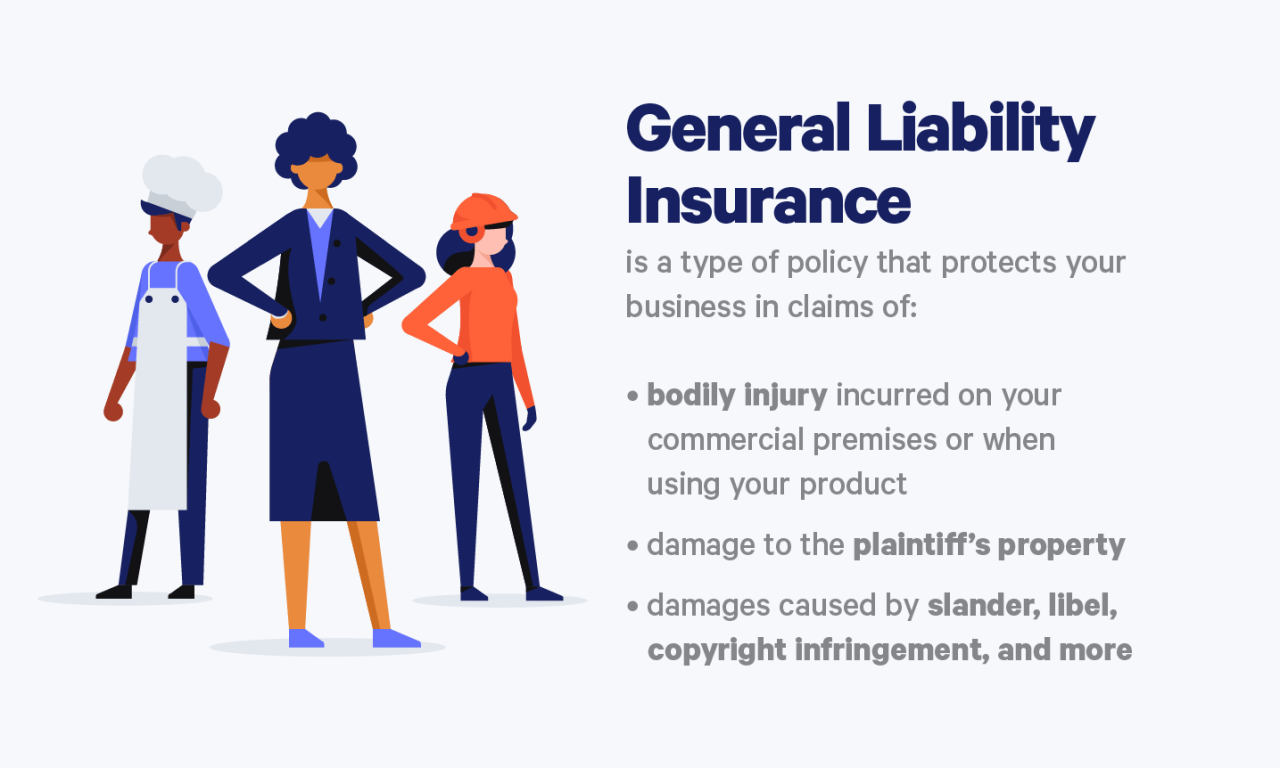
General liability insurance is a powerful tool for mitigating risks and safeguarding your financial well-being. By understanding its coverage components, factors affecting premiums, and the importance of having adequate protection, you can make informed decisions to protect your business or personal assets.
If you’ve been in a car accident or gotten a DUI, you might need sr22 insurance. This type of insurance proves to the state that you’re financially responsible, and it can help you get your license back after a suspension.
Don’t underestimate the value of this essential insurance policy – it could be the difference between weathering a storm or facing financial ruin.



